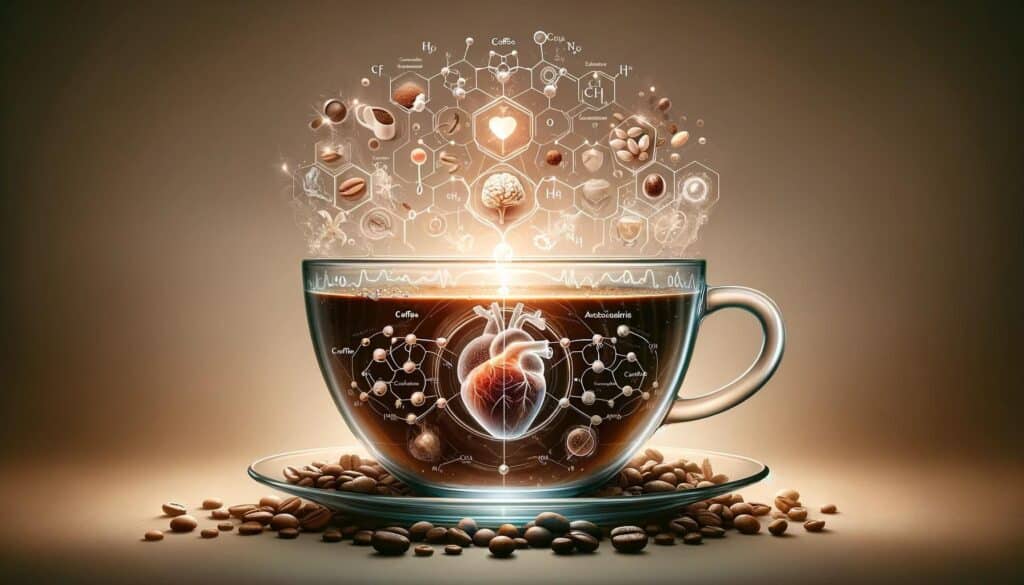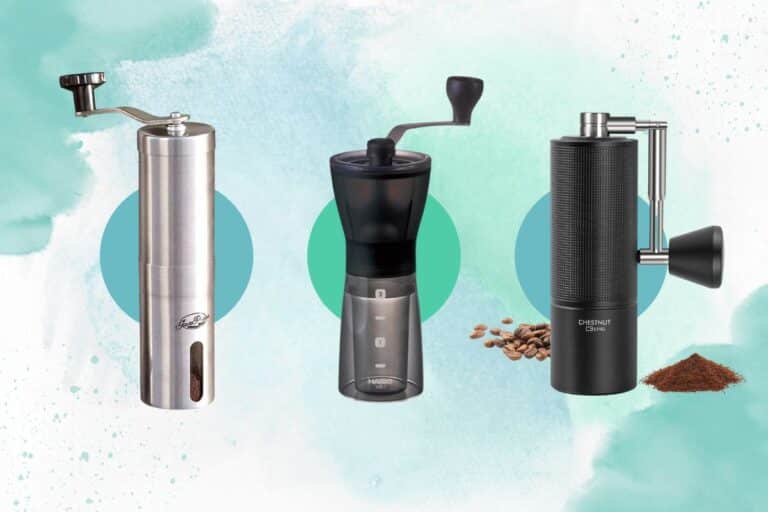Coffee, one of the world’s most beloved beverages, has a rich history and an even richer presence in daily life across the globe. From the bustling coffee shops in urban centers to the quiet kitchens in rural areas, coffee is a ubiquitous part of many cultures and routines. This global popularity is not just a matter of taste; it’s also about the ritual, the community, and, for many, the essential boost it provides to start the day.
Statistics show that billions of cups of coffee are consumed worldwide each year, making it one of the most popular drinks on the planet. Its consumption varies from country to country, with some cultures favoring strong, black espresso shots, while others prefer lighter, milk-based coffee drinks. Regardless of the form it takes, coffee is a staple in the diets of many, cutting across diverse cultures and societies.
The purpose of this article is to delve into the health aspects of coffee consumption. We aim to explore both the benefits and risks associated with this beloved beverage, offering a balanced perspective. The structure of the article will guide readers through the history of coffee, its key components, and the various health benefits and risks it may pose. We will also discuss moderation and alternatives like decaffeinated coffee, providing a comprehensive view of coffee in the context of health and wellness. By the end, readers should have a clearer understanding of how their daily cup of coffee impacts their health, allowing them to make more informed choices about their consumption habits.
The History of Coffee

The story of coffee is as rich and complex as the beverage itself, weaving through centuries and across continents. It’s a tale that reflects not just a drink, but a significant cultural and economic force.
Brief History of Coffee Discovery and Global Spread
- Origins in Ethiopia: The discovery of coffee is shrouded in legend, with the most popular tale tracing back to Ethiopia in the 9th century. It is said that a goat herder named Kaldi noticed his goats becoming unusually energetic after eating berries from a certain tree. Curious, Kaldi tried these berries himself and felt a similar invigoration.
- Spread to the Arab World: From Ethiopia, coffee made its way across the Red Sea to Yemen, where it became a part of the Islamic culture. By the 15th century, it was being cultivated in Yemen, and coffee houses, known as “qahveh khaneh,” began appearing in cities across the Middle East.
- Coffee Reaches Europe: In the 17th century, coffee entered Europe through the port of Venice, initially facing resistance from the Catholic Church, but soon gaining popularity. Coffee houses opened in major cities, becoming centers of social activity and intellectual discourse.
- Colonial Expansion and Plantations: The Dutch played a key role in the global spread of coffee, cultivating it in their colonies, including Java and Ceylon. The French, Spanish, and Portuguese also established coffee plantations in the Caribbean, South America, and Africa.
Evolution of Coffee Consumption Over the Centuries
- 17th and 18th Centuries: Coffee houses became popular in Europe, serving as hubs for intellectual and political discussions. The drink was initially a luxury for the wealthy but gradually became more accessible to the general public.
- 19th Century Industrialization: The invention of coffee processing machines and the growth of global trade routes made coffee more widely available and affordable. This period also saw the rise of coffee as a commodity on the international market.
- 20th Century to Present: The 20th century brought about significant changes in how coffee was consumed, with the rise of instant coffee and the proliferation of chain coffee shops in the latter half of the century. The modern era has seen a growing interest in specialty and artisanal coffees, ethical sourcing, and a variety of brewing techniques reflecting a more nuanced appreciation of the beverage.
Throughout its history, coffee has been a catalyst for social interaction, economic development, and even political change. Its journey from the Ethiopian highlands to the cups of billions around the world is a testament to its enduring appeal and significant role in human history.
What is in Your Cup? Understanding Coffee’s Composition

Coffee is more than just a flavorful beverage; it’s a complex concoction of chemicals that contribute to both its taste and its effects on the human body. Understanding what’s in your cup is key to appreciating both the pleasures and the impacts of your coffee habit.
Key Components of Coffee
- Caffeine: The most well-known component of coffee, caffeine is a stimulant that affects the central nervous system, leading to increased alertness and energy. The caffeine content can vary significantly depending on the type of coffee bean and the brewing method.
- Antioxidants: Coffee is a major source of antioxidants, which are vital in protecting the body against oxidative stress and inflammation. Chlorogenic acids are the most abundant antioxidants in coffee, known for their potential health benefits.
- Acids: Coffee contains several acids, such as citric, malic, and quinic acids, which contribute to its unique flavor profile. Some of these acids, like chlorogenic acid, also have health benefits, while others can impact digestion.
- Oils and Fats: Coffee beans contain oils that contribute to the aroma and body of the coffee. These oils can also affect the texture and mouthfeel of the beverage.
- Other Compounds: Coffee includes a variety of other compounds, including trigonelline, diterpenes like cafestol and kahweol, and minerals like magnesium and potassium. Each of these contributes to the health effects and flavor of coffee in different ways.
How Brewing Methods Affect These Components
- Extraction Process: Brewing methods that involve longer contact time between water and coffee grounds, like French press or cold brew, typically extract more compounds, resulting in a fuller-bodied cup with more oils and sometimes higher caffeine content.
- Temperature and Pressure: Espresso, made with high pressure and temperature, extracts a different profile of flavors and chemicals, often resulting in a richer concentration of certain compounds like caffeine and oils.
- Filtering: Filtered brewing methods, like drip coffee, can remove some of the oils and fats (including diterpenes), which can impact both the taste and health properties of the coffee. Paper filters, in particular, are effective at trapping these compounds.
- Grind Size and Quality: The size of the coffee grounds and the consistency of the grind can also influence the extraction process. Finer grinds expose more coffee surface area to water, which can lead to a more intense extraction.
In essence, the complex chemistry of coffee is influenced by a myriad of factors, from the type of bean and its roast level to the chosen brewing method. This diversity is what allows coffee to have such a wide range of flavors and effects, making each cup a unique experience. Understanding these factors can enhance not only the enjoyment of your coffee but also your awareness of its potential impact on your health and well-being.
Health Benefits of Coffee

Coffee is not just a popular beverage for its taste and stimulating effects; it also brings several health benefits, particularly in cognitive and physical health aspects.
Boosting Mental Alertness and Performance
- Effects of Caffeine on the Brain: Caffeine, the most active ingredient in coffee, is known for its ability to enhance brain function. It blocks adenosine receptors, leading to increased alertness, improved mood, better reaction times, and enhanced cognitive function.
- Studies on Coffee and Cognitive Function: Numerous studies have shown that coffee consumption is linked to lower risk of neurodegenerative diseases, such as Alzheimer’s and Parkinson’s. Regular coffee drinkers often show better performance in memory, attention, and cognitive flexibility tasks.
Physical Health Benefits
- Reducing the Risk of Certain Diseases: Research suggests that coffee drinkers have a lower risk of several serious diseases, including heart disease and certain types of cancer, such as liver and colorectal cancer.
- Impact on Liver Health and Type 2 Diabetes: Coffee consumption is associated with a lower risk of liver diseases, including liver cirrhosis and liver cancer. It also reduces the risk of type 2 diabetes, with studies showing a significant reduction in risk for regular coffee drinkers.
Antioxidants and their Effects
- Benefits of Antioxidants in Coffee: Coffee is rich in antioxidants, like polyphenols and hydrocinnamic acids, which help neutralize free radicals and reduce oxidative stress in the body. This can lead to reduced inflammation and protection against various diseases.
- Comparison with Other Antioxidant-Rich Foods: While fruits and vegetables are the most common sources of antioxidants, coffee is a significant contributor to the average antioxidant intake in some diets, often surpassing that of fruits and vegetables combined.
In summary, coffee offers various health benefits, from improving mental alertness and cognitive function to reducing the risk of physical health issues. Its high antioxidant content also plays a crucial role in overall health maintenance. However, it’s important to consume coffee in moderation, as excessive intake can lead to negative effects.
Potential Health Risks of Coffee Consumption

While coffee offers various health benefits, it’s important to be aware of the potential risks associated with its consumption, particularly due to caffeine and other additives.
Caffeine-Related Risks
- Insomnia and Sleep Disturbances:
- Caffeine can disrupt sleep patterns and lead to insomnia, especially when consumed in large amounts or late in the day. It blocks adenosine receptors, which can prevent the onset of sleep.
- The effects of caffeine can vary greatly among individuals, with some being more sensitive and experiencing sleep disturbances even with small amounts.
- Anxiety and Heart Palpitations:
- High doses of caffeine can lead to increased anxiety, jitteriness, and nervousness. This is due to the stimulatory effect of caffeine on the central nervous system.
- Excessive caffeine intake can also cause heart palpitations and rapid heartbeat. Those with pre-existing heart conditions should be particularly cautious.
Risks for Specific Populations
- Pregnant Women:
- During pregnancy, caffeine is metabolized more slowly and can cross the placenta, affecting the fetus. High caffeine intake during pregnancy has been linked to increased risks of miscarriage and low birth weight.
- It is generally recommended that pregnant women limit their caffeine intake.
- Children and Adolescents:
- Children and adolescents may be more sensitive to caffeine’s effects. High caffeine intake can affect their developing nervous systems and may lead to increased anxiety and sleep problems.
- Individuals with Certain Health Conditions:
- People with certain health conditions, such as anxiety disorders, heart conditions, and certain gastrointestinal issues, may need to limit or avoid caffeine.
Unhealthy Additives in Coffee Drinks
Impact of Sugar, Cream, and Flavored Syrups:
- Many popular coffee beverages contain high levels of added sugars and fats, which can negate the health benefits of coffee. These additives can contribute to weight gain, increased risk of diabetes, and other health issues.
- The caloric and sugar content of these drinks can be significantly higher than plain coffee, making them more akin to desserts than beverages.
In summary, while coffee can be a healthy choice when consumed in moderation, it’s important to be mindful of the potential risks associated with caffeine and the unhealthy additives often found in popular coffee drinks. Consumers should consider their personal health circumstances and choose their coffee beverages wisely to minimize potential adverse effects.
Moderation: The Key to Balancing Benefits and Risks

Balancing the health benefits of coffee with its potential risks largely depends on moderation and mindful consumption. Understanding recommended intake levels and adopting healthy coffee habits can enhance the benefits while minimizing risks.
Recommended Coffee Intake Levels
- General Guidelines:
- Most health experts agree that for most people, moderate coffee consumption is safe. This is typically defined as 3 to 4 cups per day, providing up to 400 milligrams of caffeine.
- However, these recommendations can vary based on individual tolerance, health conditions, and sensitivity to caffeine.
- Special Considerations:
- Pregnant women are advised to limit their caffeine intake to about 200 milligrams per day (about 2 cups of coffee).
- People with certain conditions, like heart problems or anxiety disorders, and those who experience sleep disturbances, may need to consume less or avoid caffeine altogether.
Tips for Enjoying Coffee Healthily
- Mind the Timing:
- Avoid consuming coffee late in the day, especially close to bedtime, as it can interfere with sleep quality.
- Consider having coffee primarily in the morning or early afternoon.
- Watch the Additives:
- Be mindful of what you add to your coffee. High amounts of sugar, cream, and flavored syrups can turn a healthy cup of coffee into a high-calorie, sugar-laden beverage.
- Opt for healthier additives like a small amount of milk, plant-based milk, or low-calorie sweeteners.
- Stay Hydrated:
- Coffee is a diuretic, so it’s important to balance your coffee intake with plenty of water to avoid dehydration.
- Choose Quality Over Quantity:
- Opting for high-quality coffee can enhance your experience. It might be more satisfying in smaller amounts than larger quantities of lower-quality coffee.
- Listen to Your Body:
- Pay attention to how your body responds to coffee. If you experience adverse effects like jitteriness, anxiety, or gastrointestinal discomfort, consider reducing your intake or choosing lower-caffeine options.
- Explore Diverse Brewing Methods:
- Experiment with different brewing methods as they can affect the flavor and health properties of coffee. For instance, filtered coffee has less cholesterol-raising substances than unfiltered coffee.
In conclusion, enjoying coffee in moderation and being mindful of how it’s consumed can help you reap its benefits while minimizing potential health risks. Remember, personal tolerance varies, so it’s important to listen to your body and adjust your coffee consumption accordingly.
Decaffeinated Coffee: A Viable Alternative?

Decaffeinated coffee offers an alternative for those who are sensitive to caffeine or wish to reduce their caffeine intake while still enjoying the taste and experience of coffee. Understanding its health benefits, risks, and how it compares to regular coffee is important for making informed choices.
Health Benefits and Risks of Decaf Coffee
- Health Benefits:
- Reduced Caffeine-Related Issues: Decaf coffee provides a coffee experience without the potential side effects of caffeine, such as insomnia, jitteriness, or heart palpitations. This makes it suitable for those with caffeine sensitivity or certain health conditions.
- Antioxidant Properties: Like regular coffee, decaf coffee still contains antioxidants, though the levels might be slightly lower due to the decaffeination process. These antioxidants can contribute to overall health.
- Lower Risk of Some Diseases: Decaf coffee has been associated with a reduced risk of certain diseases, including type 2 diabetes, liver diseases, and possibly neurological diseases.
- Potential Risks:
- Chemical Residues from Decaffeination: Some decaffeination processes involve chemicals, though the residue levels in the final product are typically low and considered safe. However, those concerned can look for brands that use water or carbon dioxide decaffeination processes, which are chemical-free.
- Slight Acidity: Like regular coffee, decaf can be acidic, which might affect individuals with certain digestive conditions, though the impact is usually less significant than with regular coffee.
Comparison with Regular Coffee
- Caffeine Content:
- The most significant difference is the caffeine content. Decaf coffee typically contains 1-5% of the caffeine content found in regular coffee, making it a good option for those looking to reduce caffeine intake.
- Flavor Profile:
- Decaf coffee might have a slightly different flavor profile compared to regular coffee. Some aficionados note a milder flavor and body, though advances in decaffeination processes have improved the taste significantly.
- Health Benefits:
- Both regular and decaf coffee share similar health benefits in terms of antioxidants and reduced risk of certain diseases. However, the stimulating effects of caffeine are absent in decaf, which could be a benefit or drawback depending on individual preferences and health considerations.
In conclusion, decaffeinated coffee is a viable alternative for those looking to enjoy coffee without the effects of caffeine. While it shares many of the health benefits of regular coffee, the choice between decaf and regular should be based on personal health considerations, caffeine sensitivity, and taste preference.
Future Directions in Coffee Research

The field of coffee research is continually evolving, with emerging studies and potential discoveries constantly reshaping our understanding of coffee’s health impacts. As researchers delve deeper into the complexities of this popular beverage, future studies are expected to uncover more nuanced insights.
Emerging Studies and Potential Discoveries
- Genetic Research on Coffee Plants:
- Advances in genetic research may lead to the development of coffee strains with varying levels of caffeine and other compounds, potentially offering health benefits or reduced health risks.
- Health Benefits of Minor Compounds:
- While current research has focused mainly on caffeine and antioxidants, future studies may explore the health effects of lesser-known compounds in coffee, such as diterpenes, melanoidins, and trigonelline.
- Personalized Coffee Consumption:
- As personalized medicine gains traction, there might be a shift towards personalized recommendations for coffee consumption based on individual genetics and health status.
The Evolving Understanding of Coffee’s Health Impact
- Refinement of Current Knowledge:
- Ongoing research continues to refine our understanding of the health benefits and risks associated with coffee. This includes exploring the role of coffee in chronic diseases, mental health, and overall mortality.
- Impact of Brewing Methods:
- Future studies might provide clearer guidelines on how different brewing methods impact the health benefits and risks of coffee, enabling consumers to make more informed choices.
- Sustainability and Health:
- With a growing emphasis on sustainability, research may also focus on how sustainable farming practices impact the health benefits of coffee, exploring the relationship between environmental factors and the nutritional content of coffee beans.
- Interaction with Lifestyle Factors:
- Future research may investigate how coffee interacts with different lifestyle factors, such as diet, exercise, and stress, to influence health outcomes.
- Global Health Perspectives:
- Given the cultural diversity in coffee consumption, more studies might examine how coffee affects health in various populations around the world, considering genetic, dietary, and lifestyle differences.
In conclusion, the future of coffee research holds exciting possibilities for new discoveries and deeper insights into how this ubiquitous beverage affects our health. As our understanding evolves, it can lead to more personalized and informed choices about coffee consumption, aligning it with individual health goals and preferences.
Conclusion
This exploration of coffee’s multifaceted impact on health reveals a beverage that is much more than a simple morning ritual. It’s a complex amalgam of compounds with significant implications for our physical and mental well-being. Here’s a summary of the key points discussed:
- History and Composition of Coffee:
- Coffee’s rich history and global spread highlight its cultural significance. Its composition, including caffeine, antioxidants, and various acids, plays a critical role in its health impacts.
- Health Benefits:
- Coffee consumption is linked to numerous health benefits, including enhanced mental alertness and cognitive function, reduced risk of certain diseases like type 2 diabetes and liver diseases, and the provision of antioxidants.
- Potential Health Risks:
- The risks associated with coffee, largely due to caffeine, include sleep disturbances, anxiety, and heart palpitations. Specific populations like pregnant women and individuals with certain health conditions may face additional risks.
- Moderation and Mindful Consumption:
- Moderation is key in reaping the benefits of coffee. The general guideline suggests limiting intake to 3-4 cups per day. Mindfulness about additives like sugar and cream is also crucial.
- Decaffeinated Coffee:
- Decaf coffee emerges as a viable alternative for those sensitive to caffeine, offering many of the same benefits as regular coffee but with lower risks associated with caffeine.
- Future Research Directions:
- Ongoing and future research will continue to refine our understanding of coffee’s health impacts, exploring genetic factors, the effects of minor compounds, and the influence of brewing methods.
In conclusion, coffee, when consumed in moderation and with consideration of individual health circumstances, can be a healthful addition to many diets. It’s important for individuals to consider their own health profiles, including any specific conditions or sensitivities, when making choices about coffee consumption. Future research promises to deepen our understanding further, potentially leading to more personalized and informed recommendations. Ultimately, enjoying coffee should be about balancing pleasure with health, understanding both its potential benefits and its limitations.
References and Further Reading
- Mayo Clinic Staff. (n.d.). Coffee and health: What does the research say? Mayo Clinic. Retrieved [insert retrieval date], from https://www.mayoclinic.org/healthy-lifestyle/nutrition-and-healthy-eating/expert-answers/coffee-and-health/faq-20058339
- Ware, M. (2017, December 22). Health benefits and risks of drinking coffee. Medical News Today. Retrieved [insert retrieval date], from https://www.medicalnewstoday.com/articles/270202
- Johns Hopkins Medicine. (n.d.). 9 reasons why (the right amount of) coffee is good for you. Retrieved [insert retrieval date], from https://www.hopkinsmedicine.org/health/wellness-and-prevention/9-reasons-why-the-right-amount-of-coffee-is-good-for-you
- Higdon, J. V., & Frei, B. (2011). Coffee and health: A review of recent human research. Critical Reviews in Food Science and Nutrition, 51(4), 363–373. https://doi.org/10.1080/10408390903586412
- Link, R. (2020, August 30). 13 health benefits of coffee, based on science. Healthline. Retrieved [insert retrieval date], from https://www.healthline.com/nutrition/top-evidence-based-health-benefits-of-coffee






